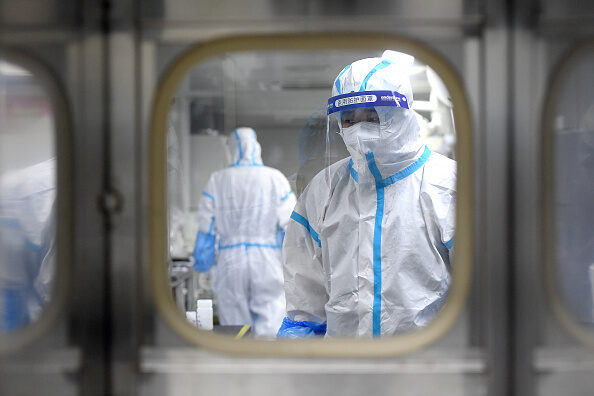Was the Covid-19 virus a chance case of animal-to-human transmission, or a deliberately engineered virus escaping from a gain of function laboratory? In the latest sign of a deep shift in America’s underlying political tectonics, the New York Times has published an op-ed complaining that “We were badly misled” about the origin of Covid-19. The lab-leak theory was always plausible, we’re now permitted to say; but groups of supposedly neutral and independent scientists colluded to produce independent-sounding denials, so as to make it seem like a fringe position. Now, apparently, we need “an honest conversation” so that nothing similar happens again.
It’s tempting just to respond with outrage to the pivot, when for so long it was the Times which led the charge in dismissing, politicising, and vilifying the lab-leak theory. But if we take the Grey Lady’s stance on any given topic less as objective fact than a primer for respectable chattering-class opinion among America’s coastal elite, over time its own reporting supplies a tacit explanation for why the official line has now firmly changed. In short: the NYT has embraced the deterioration in US-China relations.
Back in January, the Times reported on a change in position at the CIA on the origins of Covid. The reporter is at pains to emphasise that Joe Biden commissioned the report which has changed the Agency’s line, from which we are presumably to infer that this is not mere Trumpaganda. But the same article also suggests that the Biden administration was keen for the Covid virus not to be a lab leak — not least because the global political ramifications were so immense.
This was all contested early in the pandemic: in February 2020 the US State Department summoned the Chinese ambassador to protest statements made by Beijing, according to which the virus was a US military project. Republican Senator Tom Cotton, meanwhile, claimed shortly after that the virus was a Chinese bioweapon, a statement the NYT dismissed at the time as “fringe”. Both sides must have recoiled from pressing the point; but the more general one was made again in official 2023 hearings by John Ratcliffe, then Director of National Intelligence and now head of the CIA., when he pointed out a lab leak would have “enormous geopolitical implications”.
What would it do to relations between Washington and Beijing for China to have released a virus that killed over a million Americans — especially if it was created as a bioweapon to begin with? Lately, it appears that the US is preparing to lean into those implications: following the CIA’s change of stance, Cotton has called for the Trump administration to “make China pay for unleashing a plague on the world”.
But especially in light of just how coordinated the earlier efforts were to suppress the lab-leak theory, it would be naive to read this as representing an outbreak of truth. Rather, it more likely just reflects America’s hardening stance in relation to China. The recent pandemonium in Europe concerning Russia and Ukraine can be understood in the same light: as second-order effects of a US decision to deprioritise European security, in order to focus resources on its perceived chief great-power rival, China. Analysts have likewise argued that Trump’s stance toward Putin can be viewed as a “reverse Nixon”, aiming to peel Russia away from alliance with China.
In other words, the Grey Lady’s change of official stance in relation to lab leaks has little to do with “honest conversation”, and much to do with shifts in the broader geopolitical picture — especially in relation to China. We may never know if the virus was a military project, or whose. But what should be clear is that America’s rivalry with China has now hardened to a point where the lab-leak theory, once marginalised through official collusion, is crystallising as a propaganda talking-point for the same institutions that previously buried it.











Join the discussion
Join like minded readers that support our journalism by becoming a paid subscriber
To join the discussion in the comments, become a paid subscriber.
Join like minded readers that support our journalism, read unlimited articles and enjoy other subscriber-only benefits.
Subscribe